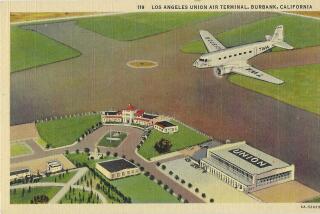Boston Airport’s Move to Restrict Small Planes Sets Off Broad Debate
- Share via
WASHINGTON — A Boston effort to relieve runway congestion by increasing landing fees for small planes is evolving into a national debate over the role of major airports.
What was a local dispute involving Logan International Airport has spilled over to Congress, the U.S. Department of Transportation and the Federal Aviation Administration.
“This is just the first foot over the line,” said Rep. Sherwood Boehlert (R-N.Y.), who has introduced legislation designed to block Logan from implementing the plan. “There are airports all over the country sort of foaming at the mouth, just waiting to follow suit.”
But Rep. Edward J. Markey (D-Mass.) said “deteriorating air traffic gridlock” justifies Logan’s goal of encouraging small aircraft to use other airfields in the area, saying, “It’s a balancing of equities.”
Logan faces a problem common to many airports: Air traffic and delays are growing, but expansion is unrealistic because of neighborhood opposition, a lack of available land and enormous construction costs.
Announces Plan
So the Massachusetts Port Authority, or Massport, the state agency that operates Logan, has announced a plan it says will permit more efficient use of the airport by 23 million passengers annually.
As of July 1, landing fees for private planes and commuter airlines will be increased from the current minimum of $25 to an average of close to $100. The costs for large airliners--now hundreds of dollars--will drop by varying amounts.
“Massport has concluded that the test of efficiency at Logan is not the number of airplanes landed per hour, but the number of people handled per hour with a minimum of delay,” the agency’s executive director, David W. Davis, said when the plan was approved March 16. “In other words, a 747 with 400 people on board deserves a higher priority than a Cessna with two people on board.”
The commuter airline, corporate aircraft and private plane industries say the Logan plan is unfair because they have as much right to use the government-supported airport as airlines do. And the higher fees will hurt their businesses, they say.
“We price our service at what we think the market will stand,” said John Fredericksen, executive vice president of the Regional Airline Assn., which represents the nation’s commuter carriers. “If we thought that extra money was out there, we’d charge it.”
Fear Restrictions
Officials of the small plane industry fear that Logan’s plan may be only the beginning of restrictions across the country.
Although air traffic grows every year, the last major U.S. metropolitan airport--Dallas-Fort Worth International--was completed in 1974. No new airports are under construction, although two cities--Denver and Austin--are moving toward building new ones, and about a dozen others hope to add runways at existing airfields.
Since new airports take at least four years to build--and cost $1.5 billion to $2 billion--existing fields are moving to make better use of what they have. Modern air traffic equipment will allow more frequent takeoffs and landings, but it is expensive and in many cases needs further development.
As delays grow, more airfields are considering shunting some of their small plane traffic elsewhere by raising fees, particularly during busy morning and evening hours.
The Port Authority of New York and New Jersey, which operates John F. Kennedy, LaGuardia and Newark airports, is expected in September to impose slight rush-hour increases in takeoff fees for small planes.
Massport spokesman Tom Champion declined to name airports that have contacted his agency but conceded, “There are a lot of people watching us with great interest.”
Said Fredericksen of the regional airline group, “Our concern is that airports will try to limit traffic, rather than expand capacity.”
Boehlert’s bill, and an identical Senate version co-sponsored by seven Northeastern lawmakers, face uncertain futures. The 1988 congressional schedule is a short one, and committee chairmen say they have not decided whether to even hold hearings for the legislation.
But Rep. Bob Carr (D-Mich.) a private plane pilot, said he will try attaching an amendment to a spending bill this month that would kill the Logan plan and discourage other airports from adopting similar restrictions.
“This is a national airspace system, and here we have one airport trying to make policy,” he said.
Opponents of the Logan program have opened other fronts. Small plane industry groups have filed federal lawsuits in Boston and also have asked the FAA and Transportation Department to step in on their behalf.
Supporters of Logan’s efforts say, however, that similar plans are inevitable.
“It’s the wave of the future,” said Rep. Charles Schumer (D-N.Y.) “As the skies get more crowded, rational pricing policies will be imposed at other airports, and Logan is blazing the trail.”
More to Read
Sign up for Essential California
The most important California stories and recommendations in your inbox every morning.
You may occasionally receive promotional content from the Los Angeles Times.













